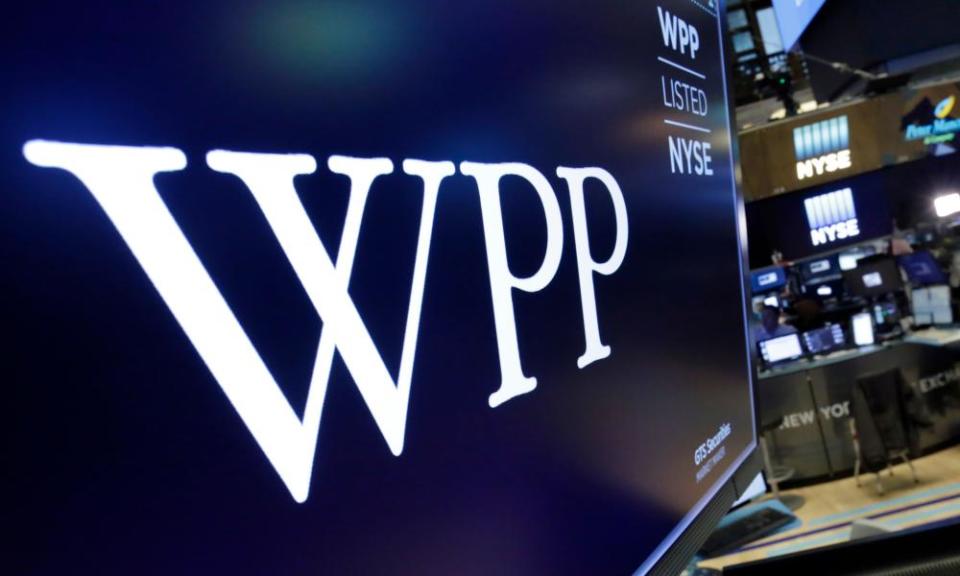WPP could sell stakes worth billions in Vice and other companies

WPP is to sell stakes worth billions of pounds that it holds in a wide range of companies, as the world’s largest advertising group looks to refocus after the departure of founder Sir Martin Sorrell.
The company has what analysts have called a “hidden treasure trove” of assets that are not part of its core business, such as a 9% stake in Vice, which as a business is valued at about $6bn.
WPP says the book value of these investments is about £2.5bn. However, analysts believe the true market value could be more than £6bn.
The assets also include 15% of digital advertising business AppNexus, which is lining up a potential $10bn stock market listing, and a holding in the Nasdaq-listed software group Globant.
“There would be a lot of demand for our equity stakes in some of those investments,” said Andrew Scott, who is co-running WPP while a successor to Sorrell is found. “We have had some very successful investments. We have tended to not proactively make an exit unless forced by a sale or IPO. Is there an opportune moment to realise value in some of those investments? That will definitely be a focus going forward.”
The company said it intends to use some of the proceeds to help pay down WPP’s debt by £750m to improve its balance sheet profile.
Roberto Quarta, the WPP chairman, was quizzed by City analysts at its first-quarter results presentation over the decision not to publish the outcome of the investigation into personal misconduct that prompted Sorrell to resign.
“Martin resigned. Martin was not terminated,” Quarta said. “This came about at the end of the investigation. When the results of the investigation were known, Martin decided to resign before the board had taken into consideration the outcome of the investigation and determine whether or not it was appropriate to take action. I think that’s important for everybody to be clear on. We have no requirement to disclose or necessity to disclose.”
He added that the issue of personal misconduct “is really what we consider to be a matter of privacy and therefore it’s a matter for Martin. And hence the reason why we did not disclose.”
WPP bosses have signalled a willingness to sell off underperforming parts of the global marketing empire but have ruled out a complete break-up following Sorrell’s departure, as shares surged almost 9% after a better-than-expected first quarter.
WPP is already running the rule over the future of the market research arm, Kantar, which continues to underperform, and has received an approach from the private capital group CVC. The market research division, which accounts for 15% of WPP’s profits and 18% of revenues, is valued at about £3.5bn.
“Having worked here 20 years or more and talking to clients, and seeing what they want, it doesn’t make sense to break it up,” said Mark Read, who is jointly running WPP alongside Scott and is keen to take on the vacant chief executive role. “That doesn’t mean we can’t look at specific asset sales.”
Analysts believe a sale of the parts of WPP could net investors at least £22bn. WPP’s market capitalisation is £14bn and its share price has fallen by more than a quarter in the past year.
WPP reported a fall in revenue of just 0.1% to £2.94bn in the first quarter, beating analysts’ expectations of a fall of about 1%.
WPP, which is facing a global review of the creative advertising business of its biggest client, Ford, has improved significantly from a poor start in which like-for-like revenues fell 1.2% in January. Nevertheless, it is its worst first-quarter performance in the best part of decade.
This followed the world’s largest ad group weathering its worst year for growth since the recession in 2009, with a 0.9% fall in 2017.
Read said WPP’s media buying, digital and PR businesses did well, and geographically the company performed well in faster-growing markets such as Asia Pacific and Latin America.
He said the company was underperforming in North America and the businesses “most challenged by structural changes in advertising and parts of market research”.
The results mark the last with Sorrell as chief executive after he resigned in April from the company he founded 33 years ago.

 Yahoo Finance
Yahoo Finance 